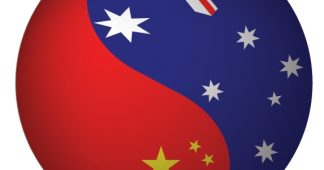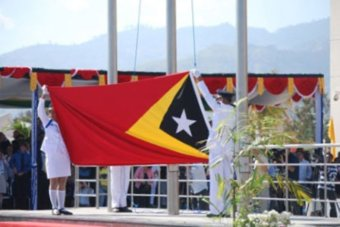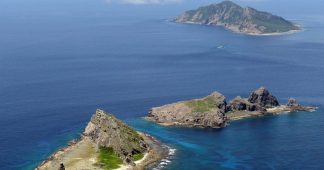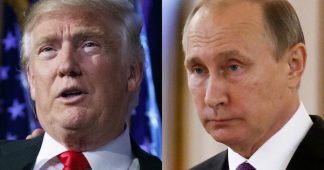Powerful crossbench senator Nick Xenophon has warned China could sink an Australian naval ship to send a message to the United States if tensions escalate in the South China Sea.
And he has raised the spectre of calls for Chinese Australians to be interned in camps if conflict broke out between China and the US and her allies including Australia.
Writing in Fairfax Media on Friday, Senator Xenophon argues the cost of conflict with China would be so high that it outweighs any obligation Australia should feel to join its ally the United States in pressuring Beijing to curb its activities in the strategic waterways.
If Australia were to get involved in military action in the South China Sea it should be on its own terms and backed by parliamentary approval, he said.
Senator Xenophon quotes an ancient Chinese proverb attributed to famed military strategist Sun Tzu that to “scare the monkey” one must first “kill the chicken”, meaning to warn off a larger adversary by punishing a smaller player.
“China may decide to ‘kill the chicken to scare the monkey’ – sink an Australian vessel to warn off the United States Navy,” he said.
“Are we truly ready for the consequences of a war? Unlike Afghanistan and Iraq, where there were relatively few casualties, this time we may see large numbers of body bags returning, or never returning at all, since they may have been sunk at sea.
“Is Australia ready for a relentless parade of funerals? For calls from the extreme political fringe for Chinese Australians to be interned in camps?”
The article is a condensed version of a speech Senator Xenophon gave on Thursday night to the Australian Strategic Policy Institute.
The US and its allies have for several years been wrestling with how to stop China gradually gaining control of the South China Sea by building and militarising islands based on tiny coral reefs and rocks.
The US under Barack Obama made gestures at least twice by sailing its naval ships close to Chinese-claimed islands, but so far Australia’s opposition to the island-building has remained rhetorical.
A report published last year by the US think tank the RAND Corporation found that a war between the US and China would shrink China’s GDP by up to 35 per cent and that of the US by up to 10 per cent.
Senator Xenophon said, however, that given Australia’s greater trade dependence on China and the region, “a 30 per cent contraction would not be out of the question” for Australia.
A war with China could also rip Australia’s social fabric apart, he said.
“Seeing Chinese Australians and Chinese students on our streets shows how integral they’ve become to our nation’s fabric.”
Senator Xenophon said Australian military action should need parliamentary approval unless it was for self-defence – a view that has periodically been the subject of fierce debate, particularly since the invasion of Iraq in 2003.
“I don’t think any Australian participation in the South China Sea ought to occur until every member of the Australian Parliament has had a chance to vote on it,” he said.
Clinton Fernandes, a professor of international studies at the University of NSW who sometimes informally advises Senator Xenophon, said he and colleagues had devised a model for parliamentary approval that avoided common objections.
Key intelligence could be shared with relevant parliamentary committees, and immediate deployments requiring flexibility should be retroactively considered by MPs but halted if Parliament did not back them, he said. Self-defence did not require authorisation because it is lawful under the UN Charter’s Article 51.











